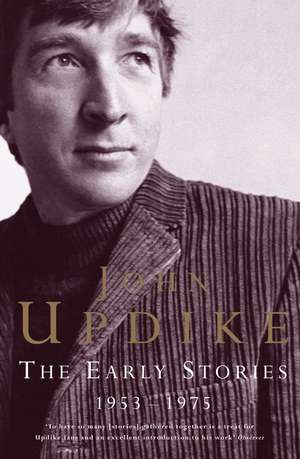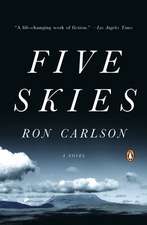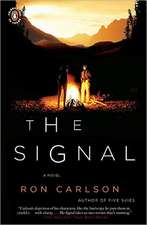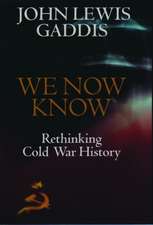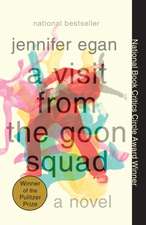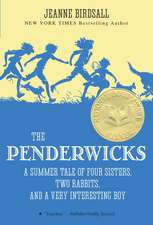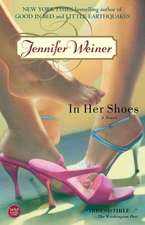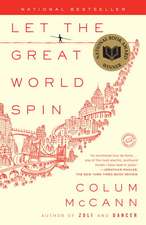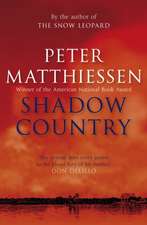The Early Stories: 1953-1975
Autor John Updikeen Limba Engleză Paperback – 6 apr 2005
| Toate formatele și edițiile | Preț | Express |
|---|---|---|
| Paperback (2) | 113.33 lei 26-32 zile | |
| Penguin Books – 6 apr 2005 | 113.33 lei 26-32 zile | |
| BALLANTINE BOOKS – 31 aug 2004 | 131.96 lei 3-5 săpt. |
Preț: 113.33 lei
Preț vechi: 130.95 lei
-13% Nou
Puncte Express: 170
Preț estimativ în valută:
21.69€ • 22.64$ • 17.95£
21.69€ • 22.64$ • 17.95£
Carte disponibilă
Livrare economică 20-26 martie
Preluare comenzi: 021 569.72.76
Specificații
ISBN-13: 9780141016085
ISBN-10: 0141016086
Pagini: 864
Dimensiuni: 154 x 233 x 55 mm
Greutate: 0.78 kg
Editura: Penguin Books
Colecția Penguin
Locul publicării:London, United Kingdom
ISBN-10: 0141016086
Pagini: 864
Dimensiuni: 154 x 233 x 55 mm
Greutate: 0.78 kg
Editura: Penguin Books
Colecția Penguin
Locul publicării:London, United Kingdom
Notă biografică
John
Updike
was
born
in
1932
in
Shillington,
Pennsylvania.
He
is
the
author
of
over
fifty
books,
includingThe
Poorhouse
Fair;the
Rabbit
series
(Rabbit,
Run;Rabbit
Redux;Rabbit
Is
Rich;
Rabbit
At
Rest);Marry
Me;The
Witches
of
Eastwick,which
was
made
into
a
major
feature
film;Memories
of
the
Ford
Administration;
Brazil;
In
the
Beauty
of
the
Lilies;Toward
the
End
of
Time;Gertrude
and
Claudius;andSeek
My
Face.He
has
written
a
number
of
collections
of
short
stories,
includingThe
Afterlife
and
Other
StoriesandLicks
of
Love,
which
includes
a
final
Rabbit
story,Rabbit
Remembered.His
essays
and
criticism
first
appeared
in
publications
such
as
theNew
Yorkerand
theNew
York
Review
of
Books,
and
are
now
collected
into
numerous
volumes.Collected
Poems
1953-1993brings
together
almost
all
of
his
verse,
and
a
new
edition
of
hisSelected
Poemsis
forthcoming
from
Hamish
Hamilton.
His novels, stories, and non-fiction collections have won have won the Pulitzer Prize, the National Book Award, the PEN/Faulkner Award, the American Book Award, the National Book Critics Circle Award, the Rosenthal Award and the Howells Medal.
Updike graduated from Harvard College in 1954, and spent a year at Oxford's Ruskin School of Drawing and Fine Art. From 1955 to 1957 he was a member of staff at the New Yorker, and he lived in Massachusetts from 1957 until his death in January 2009.
His novels, stories, and non-fiction collections have won have won the Pulitzer Prize, the National Book Award, the PEN/Faulkner Award, the American Book Award, the National Book Critics Circle Award, the Rosenthal Award and the Howells Medal.
Updike graduated from Harvard College in 1954, and spent a year at Oxford's Ruskin School of Drawing and Fine Art. From 1955 to 1957 he was a member of staff at the New Yorker, and he lived in Massachusetts from 1957 until his death in January 2009.
Extras
You’ll Never Know, Dear, How Much I Love You
Carnival! In the vacant lot behind the old ice plant! Trucks have been unloading all afternoon; the WhirloGig has been unfolded like a giant umbrella, they assembled the baby Ferris wheel with an Erector Set. Twice the trucks got stuck in the mud. Straw has been strewn everywhere. They put up a stage and strung lights. Now, now, gather your pennies; supper is over and an hour of light is left in the long summer day. See, Sammy Hunnenhauser is running; Gloria Gring and her gang have been there all afternoon, they never go home, oh hurry, let me go; how awful it is to have parents that are poor, and slow, and sad!
Fifty cents. The most Ben could beg. A nickel for every year of his life. It feels like plenty. Over the roof of crazy Mrs. Moffert’s house, the Ferris wheel tints the air with pink, and the rim of this pink mixes in his excitement with the great notched rim of the coin sweating in his hand. This house, then this house, and past the ice plant, and he will be there. Already the rest of the world is there, he is the last, hurrying, hurrying, the balloon is about to take off, the Ferris wheel is lifting; only he will be left behind, on empty darkening streets.
Then there, what to buy? There are not so many people here. Grownups carrying babies mosey glassily on the straw walks. All the booth people, not really Gypsies, stare at him, and beckon weakly. It hurts him to ignore the man with the three old softballs, and the old cripple at the merry-go-round, and the fat lady with her plaster Marys, and the skeleton suspended behind a fountain of popcorn. He feels his walking past them as pain. He wishes there were more people here; he feels a fool. All of this machinery assembled to extract from him his pathetic fifty cents. He watches at a distance a thickset man in earnestly rolled-up shirtsleeves twirl a great tinselled wheel with a rubber tongue that patters slower and slower on a circle of nails until it stops between two, and the number there wins. Only a sailor and two boys in yellow silk high-school athletic jackets play. None win. The thick tattooed arm below the rolled-up shirtsleeve carefully sweeps their nickels from a long board divided and numbered as if for hopscotch. The high-school boys, with sideburns and spotty whiskers on their bright-pink jaws, put down nickels again leadenly, and this time the man spinning the wheel shouts when it stops, seems more joyful than they, and reaches into his deep apron pocket and pours before them, without counting, a perfect little slipping stack of nickels. Their gums showing as if at a dirty joke, the two boys turn—the shimmer on their backs darts and shifts in cool z’s—and walk away, while the man is shouting, “Hey, uh winneh. Hey, uh winneh, evvybody wins.” His board is bare, and as his mouth continues to form the loud words his eyes lock Ben into a stare of heartbreaking brown blankness that seems to elucidate with paralyzing clarity Ben’s state: his dungarees, his fifty cents, his ten years, his position in space, and above the particulars the immense tinted pity, the waste, of being at one little place instead of everywhere, at any time. Then the man looks away, and twirls the wheel for his own amusement.
The fifty-cent piece feels huge to Ben’s fingers, a wide oppressive rigidity that must be broken, shattered into twinkling fragments, to merge in the tinsel and splinters of strewn straw. He buys, at the first stand he strikes, a cone of cotton candy, and receives, with the furry pink pasty uncoiling thing, a quarter, a dime, and a nickel: three coins, tripling his wealth.
Now people multiply, crowd in from the houses of the town, which stand beyond the lot on all sides in black forbidding silhouettes like the teeth of a saw. The lights go on; the faces of the houses flee. There is nothing in the lot but light, and at its core, on the stage, three girls wearing white cowboy hats and white spangled skirts and white boots appear, and a man also in white and bearing a white guitar strung with gold. The legs around Ben crush him toward the stage; the smell of mud mingles with the bright sight there. One of the girls coughs into the microphone and twists its neck, so a sharp whine pierces from the loudspeakers and cuts a great crescent through the crowd, leaving silence as harvest. The girls sing, toe-tapping gingerly: “The other night, dear, as I lay sleeping, I dreamt I held you in my arms.” The spangles on their swishing skirts spring prickles like tears in Ben’s eyes. The three voices sob, catch, twang, distend his heart like a rubber band at the highest pitch of their plaint. “—I was mistaken, and I hung my head, a-and cried.” And then the unbearable rising sugar of the chorus that makes his scalp so tight he fears his head will burst from sweet fullness.
The girls go on to sing other songs, less good, and then they give way to a thin old man in suspenders and huge pants he keeps snapping and looking down and whooping into. He tells horrible jokes that make the nice fat ladies standing around Ben—nice fat factory and dust-mop women that make him feel protected—shake with laughter. He fears their quaking, feels threatened from beneath, as if there is a treacherous stratum under this mud and straw. He wanders away, to let the words of “You Are My Sunshine” revolve in his head. “Please don’t take my sunshine away.” Only the money in his pocket weighs him; get rid of it, and he will sail away like a dandelion seed.
He goes to the booth where the wheel is turning, and puts his nickel on the board in a square marked 7, and loses it.
He puts the dime there, and it too is taken away.
Squeezed, almost hidden, between the crusty trousered haunches of two adults, he puts down his quarter, as they do, on the inner edge, to be changed. The tattooed man comes along, picking up the quarters and pouring, with his wonderfully automatic fingers, the little slipping stacks of five nickels; Ben holds his breath, and to his horror feels his low face catch in the corner of the man’s absent-minded eyes. The thick solemn body snags in its smooth progress, and Ben’s five nickels are raggedly spaced. Between the second and third there is a gap. A blush cakes Ben’s cheeks; his gray-knuckled fingers, as they push out a nickel, are trembling sideways at each other. But the man goes back, and spins the wheel, and Ben loses three nickels one after another. The twittering wheel is a moon-faced god; but Ben feels humanity clouding the space between him and it, which should be unobstructed. When the tattooed arm—a blue fish, an anchor, the queer word peace—comes to sweep in his nickels, he feels the stippled skin breathing thought, and lowers his head against the expected fall of words. Nothing is said, the man moves on, returns to the wheel; but Ben feels puzzled pressure radiating from him, and the pointed eyes of a man in a suit with chalk stripes who has come to stand at the far side of the stand intersect this expanding circle, and Ben, hurrying to pour his money down a narrowing crack, puts down his last two nickels, still on 7.
The rubber tongue leaps into pattering and as the wheel whirls the tattooed man leans backward to hear the one in chalk stripes talk; this one’s tongue patters silently but a tiny motion of his smooth hand, simultaneous with a sideways stab of his eyes, is toward Ben.
The rubber tongue slows, flops, stops at 7—no, 8. He lost, and can leave. The floor of his stomach lifts queerly. “Hey, kid.” The man with terrible spoiled arms comes over. Ben feels that no matter how fast he would run those arms would stretch and snare him.
“Huh?”
“How old are you, kid?”
“Ten.”
“Whatsamatta with ya, ya daddy rich?”
A titter moves stiffly among the immense adult heads all around. Ben understands the familiar role, that he has undergone a hundred times with teachers and older boys, of being a comic prop. He understands everything, and wants to explain that he knows his eyes are moist and his cheeks red but that it’s because of joy, freedom, not because of losing. But this would be too many words; even the one-word answer “No” sticks to the roof of his mouth and comes loose with a faint tearing noise.
“Here.” With his exciting expert touch, the tattooed man flicks Ben’s two coins back across the painted number. Then he digs into his pocket. He comes up with the usual little stack of five, drops four, but holds the fifth delicately between the tips of two fingers and a thumb, hesitates so that Ben can reread peace in blue above his wrist, and then flips the fifth nickel up into his palm and thence down with a plunge into his dirty sagging apron pouch.
“Now move away from the board, kid, move away. Don’t come back.”
Ben fumbles the coins into his hands and pushes away, his eyes screwed to the sharp edge of painted wood, and he shoulders blindly backward through the legs. Yet all the time, in the midst of the heat and water welling up from springs all over his body, he is figuring, and calculates he’s been gypped. Forty: he had the quarter and dime and nickel, and they gave him back only six nickels: thirty. The injustice. They pretend he’s too little to lose and then keep a dime. The waste. The lost dime seems a tiny hole through which everything in existence is draining. As he moves away, his wet knees jarring, trying to hide forever from every sailor and fat woman and high-schooler who witnessed his disgrace, the six nickels make a knobbed weight bumping his thigh through his pocket. The spangles, the splinters of straw and strings of light, the sawtooth peaks of houses showing behind the heads of grown-ups moving above the scent of grassy mud are hung like the needles of a Christmas tree with the transparent, tinted globes confusing his eyelashes.
Thus the world, like a jaded coquette, spurns our attempts to give ourselves to her wholly.
From the Hardcover edition.
Carnival! In the vacant lot behind the old ice plant! Trucks have been unloading all afternoon; the WhirloGig has been unfolded like a giant umbrella, they assembled the baby Ferris wheel with an Erector Set. Twice the trucks got stuck in the mud. Straw has been strewn everywhere. They put up a stage and strung lights. Now, now, gather your pennies; supper is over and an hour of light is left in the long summer day. See, Sammy Hunnenhauser is running; Gloria Gring and her gang have been there all afternoon, they never go home, oh hurry, let me go; how awful it is to have parents that are poor, and slow, and sad!
Fifty cents. The most Ben could beg. A nickel for every year of his life. It feels like plenty. Over the roof of crazy Mrs. Moffert’s house, the Ferris wheel tints the air with pink, and the rim of this pink mixes in his excitement with the great notched rim of the coin sweating in his hand. This house, then this house, and past the ice plant, and he will be there. Already the rest of the world is there, he is the last, hurrying, hurrying, the balloon is about to take off, the Ferris wheel is lifting; only he will be left behind, on empty darkening streets.
Then there, what to buy? There are not so many people here. Grownups carrying babies mosey glassily on the straw walks. All the booth people, not really Gypsies, stare at him, and beckon weakly. It hurts him to ignore the man with the three old softballs, and the old cripple at the merry-go-round, and the fat lady with her plaster Marys, and the skeleton suspended behind a fountain of popcorn. He feels his walking past them as pain. He wishes there were more people here; he feels a fool. All of this machinery assembled to extract from him his pathetic fifty cents. He watches at a distance a thickset man in earnestly rolled-up shirtsleeves twirl a great tinselled wheel with a rubber tongue that patters slower and slower on a circle of nails until it stops between two, and the number there wins. Only a sailor and two boys in yellow silk high-school athletic jackets play. None win. The thick tattooed arm below the rolled-up shirtsleeve carefully sweeps their nickels from a long board divided and numbered as if for hopscotch. The high-school boys, with sideburns and spotty whiskers on their bright-pink jaws, put down nickels again leadenly, and this time the man spinning the wheel shouts when it stops, seems more joyful than they, and reaches into his deep apron pocket and pours before them, without counting, a perfect little slipping stack of nickels. Their gums showing as if at a dirty joke, the two boys turn—the shimmer on their backs darts and shifts in cool z’s—and walk away, while the man is shouting, “Hey, uh winneh. Hey, uh winneh, evvybody wins.” His board is bare, and as his mouth continues to form the loud words his eyes lock Ben into a stare of heartbreaking brown blankness that seems to elucidate with paralyzing clarity Ben’s state: his dungarees, his fifty cents, his ten years, his position in space, and above the particulars the immense tinted pity, the waste, of being at one little place instead of everywhere, at any time. Then the man looks away, and twirls the wheel for his own amusement.
The fifty-cent piece feels huge to Ben’s fingers, a wide oppressive rigidity that must be broken, shattered into twinkling fragments, to merge in the tinsel and splinters of strewn straw. He buys, at the first stand he strikes, a cone of cotton candy, and receives, with the furry pink pasty uncoiling thing, a quarter, a dime, and a nickel: three coins, tripling his wealth.
Now people multiply, crowd in from the houses of the town, which stand beyond the lot on all sides in black forbidding silhouettes like the teeth of a saw. The lights go on; the faces of the houses flee. There is nothing in the lot but light, and at its core, on the stage, three girls wearing white cowboy hats and white spangled skirts and white boots appear, and a man also in white and bearing a white guitar strung with gold. The legs around Ben crush him toward the stage; the smell of mud mingles with the bright sight there. One of the girls coughs into the microphone and twists its neck, so a sharp whine pierces from the loudspeakers and cuts a great crescent through the crowd, leaving silence as harvest. The girls sing, toe-tapping gingerly: “The other night, dear, as I lay sleeping, I dreamt I held you in my arms.” The spangles on their swishing skirts spring prickles like tears in Ben’s eyes. The three voices sob, catch, twang, distend his heart like a rubber band at the highest pitch of their plaint. “—I was mistaken, and I hung my head, a-and cried.” And then the unbearable rising sugar of the chorus that makes his scalp so tight he fears his head will burst from sweet fullness.
The girls go on to sing other songs, less good, and then they give way to a thin old man in suspenders and huge pants he keeps snapping and looking down and whooping into. He tells horrible jokes that make the nice fat ladies standing around Ben—nice fat factory and dust-mop women that make him feel protected—shake with laughter. He fears their quaking, feels threatened from beneath, as if there is a treacherous stratum under this mud and straw. He wanders away, to let the words of “You Are My Sunshine” revolve in his head. “Please don’t take my sunshine away.” Only the money in his pocket weighs him; get rid of it, and he will sail away like a dandelion seed.
He goes to the booth where the wheel is turning, and puts his nickel on the board in a square marked 7, and loses it.
He puts the dime there, and it too is taken away.
Squeezed, almost hidden, between the crusty trousered haunches of two adults, he puts down his quarter, as they do, on the inner edge, to be changed. The tattooed man comes along, picking up the quarters and pouring, with his wonderfully automatic fingers, the little slipping stacks of five nickels; Ben holds his breath, and to his horror feels his low face catch in the corner of the man’s absent-minded eyes. The thick solemn body snags in its smooth progress, and Ben’s five nickels are raggedly spaced. Between the second and third there is a gap. A blush cakes Ben’s cheeks; his gray-knuckled fingers, as they push out a nickel, are trembling sideways at each other. But the man goes back, and spins the wheel, and Ben loses three nickels one after another. The twittering wheel is a moon-faced god; but Ben feels humanity clouding the space between him and it, which should be unobstructed. When the tattooed arm—a blue fish, an anchor, the queer word peace—comes to sweep in his nickels, he feels the stippled skin breathing thought, and lowers his head against the expected fall of words. Nothing is said, the man moves on, returns to the wheel; but Ben feels puzzled pressure radiating from him, and the pointed eyes of a man in a suit with chalk stripes who has come to stand at the far side of the stand intersect this expanding circle, and Ben, hurrying to pour his money down a narrowing crack, puts down his last two nickels, still on 7.
The rubber tongue leaps into pattering and as the wheel whirls the tattooed man leans backward to hear the one in chalk stripes talk; this one’s tongue patters silently but a tiny motion of his smooth hand, simultaneous with a sideways stab of his eyes, is toward Ben.
The rubber tongue slows, flops, stops at 7—no, 8. He lost, and can leave. The floor of his stomach lifts queerly. “Hey, kid.” The man with terrible spoiled arms comes over. Ben feels that no matter how fast he would run those arms would stretch and snare him.
“Huh?”
“How old are you, kid?”
“Ten.”
“Whatsamatta with ya, ya daddy rich?”
A titter moves stiffly among the immense adult heads all around. Ben understands the familiar role, that he has undergone a hundred times with teachers and older boys, of being a comic prop. He understands everything, and wants to explain that he knows his eyes are moist and his cheeks red but that it’s because of joy, freedom, not because of losing. But this would be too many words; even the one-word answer “No” sticks to the roof of his mouth and comes loose with a faint tearing noise.
“Here.” With his exciting expert touch, the tattooed man flicks Ben’s two coins back across the painted number. Then he digs into his pocket. He comes up with the usual little stack of five, drops four, but holds the fifth delicately between the tips of two fingers and a thumb, hesitates so that Ben can reread peace in blue above his wrist, and then flips the fifth nickel up into his palm and thence down with a plunge into his dirty sagging apron pouch.
“Now move away from the board, kid, move away. Don’t come back.”
Ben fumbles the coins into his hands and pushes away, his eyes screwed to the sharp edge of painted wood, and he shoulders blindly backward through the legs. Yet all the time, in the midst of the heat and water welling up from springs all over his body, he is figuring, and calculates he’s been gypped. Forty: he had the quarter and dime and nickel, and they gave him back only six nickels: thirty. The injustice. They pretend he’s too little to lose and then keep a dime. The waste. The lost dime seems a tiny hole through which everything in existence is draining. As he moves away, his wet knees jarring, trying to hide forever from every sailor and fat woman and high-schooler who witnessed his disgrace, the six nickels make a knobbed weight bumping his thigh through his pocket. The spangles, the splinters of straw and strings of light, the sawtooth peaks of houses showing behind the heads of grown-ups moving above the scent of grassy mud are hung like the needles of a Christmas tree with the transparent, tinted globes confusing his eyelashes.
Thus the world, like a jaded coquette, spurns our attempts to give ourselves to her wholly.
From the Hardcover edition.
Recenzii
“Classic gems . . . These stories, like Mr. Updike’s finest novels . . . preserve a time and a place through the sorcery of words.”—The New York Times
“[Updike is] akin to Coleridge and Shelley, only with an American twist. One story at a time, he [reminds] Americans that in spite of life’s largesse, things fail; one sentence at a time, he reveals that through the small details, it can be sublime.”—The Denver Post
“Updike’s artistry—normally glimpsed in sections, like a person through window slats—is wholly and deeply seen. . . . One reads through the plenitude with delight, expectation, and at all times gratitude.”—The Atlantic Monthly
“[Updike is] akin to Coleridge and Shelley, only with an American twist. One story at a time, he [reminds] Americans that in spite of life’s largesse, things fail; one sentence at a time, he reveals that through the small details, it can be sublime.”—The Denver Post
“Updike’s artistry—normally glimpsed in sections, like a person through window slats—is wholly and deeply seen. . . . One reads through the plenitude with delight, expectation, and at all times gratitude.”—The Atlantic Monthly
